Education is one of the subjects in which NTA conducts UGC NET to fill the recruitment of Junior Research Fellowship and Lectureship in government and private universities.
If you are aiming to make your career in the Research or Teaching field after completing your postgraduation, then UGC NET 2025 is the perfect gateway to achieve your goal.
With the right approach, preparation strategies, and a clear understanding of the syllabus and exam pattern, achieving success in UGC NET Education 2025 is within your reach.
Here at this page, you can get everything what you need to know about the UGC NET JRF Education Exam 2025. Kindly go through it and start your exam preparation.
Why Take UGC NET? Career Scope in Education
UGC NET Education Eligibility Criteria
NTA NET Syllabus for Education
UGC NET Education Study Material
Previous Papers and Answer Key for NET Education
Cut off Marks to Set Your Target
UGC NET Education Preparation Tips
UGC NET Frequently Asked Questions
Why Take UGC NET? Career Scope in Education
After qualifying for UGC NET Education, Salary and stipend
- Assistant Professor (Government): A starting salary of approximately ₹70,000 per month, as noted in IFAS and JRFADDA.
- Assistant Professor (Private): A monthly salary range of ₹35,000 to ₹60,000.
- JRF: A stipend of INR 35,000 per month for the last three years of the fellowship.
- Postdoctoral Fellow: Potential for a monthly stipend between ₹50,000 and ₹70,000.
Also, you can avail of various UGC NET Scholarships and fellowships provided by the University Grants Commission as an award for extraordinary performance in the academic field.
Here, we have listed some best career options in the field of Education after the National Eligibility Test. You can check them below: -
Teaching
Assistant Professor
Counsellor
Teaching Assistant
Head of Department
Research Scholar
Curriculum Developer
Educational Consultant
Media and Technology Specialist
Educational Policy Developer
Foreign Language Tutor
Sociologist
There are many other job opportunities available for UGC NET Aspirants. You can check them from here -Career Scope After Qualifying UGC NET Exam
After knowing the career options of UGC NET Education, if you want to apply for the upcoming exam then you must satisfy the complete eligibility criteria for the UGC NET Exam.
Download UGC NET Syllabus 2025 Free PDF
UGC NET Education 2025 Eligibility Criteria
Before applying for the UGC NET Education exam, candidates must meet specific eligibility requirements.
Considering the percentage gained in PG degree, age limit, or differences in post-graduation subjects, many of you worry about whether you’ll be eligible for UGC NET Education.
NTA has released the complete guidelines of NET 2025 Eligibility for the candidates who want to appear for the examination. You can check these criteria below: -
Educational Qualifications
To be eligible for NET Education, you must have the minimum required marks in your master's degree of Education or related subjects from any of the UGC Approved Universities.
Candidates must have a Master’s degree or equivalent in Education or a related subject from a recognized university.
A minimum of 55% marks (for General/Unreserved category) or 50% marks (for SC/ST/OBC-NCL/PwD/Third gender) is required.
Final-year postgraduate students can also apply.
Age Limit
In continuation of the qualification, NTA has certain age limit criteria too, which are as follows: -
For Junior Research Fellowship (JRF): The maximum age limit is 30 years.
Age Relaxation: Up to 5 years for OBC-NCL, SC, ST, PwD, and women candidates.
For L.L.M. Degree Holders – 33 Years
For the role of Assistant Professor and admission to PhD, there is no upper age limit.
Check the UGC NET Eligibility Criteria to get a detailed idea about these guidelines and the related courses for which you can apply for UGC NET Education Exam.
UGC NET 2025 Education Exam Pattern
Now, you should start your exam preparation with the complete detail of the UGC NET Paper Pattern. Here, we are providing you the UGC NET Exam Pattern released by the official.
NTA conducts Paper 1 & Paper 2 in a single three-hour duration.
Paper-I is also known as General Aptitude Paper is common for all. It consists of 50 questions carrying 100 marks.
Paper-II is subject-related objective type-based questions that consist of 100 questions carrying 200 marks.
There will be no negative marking for the incorrect answers, so it is recommended to attempt all questions.
| Paper |
Subject |
Marks |
Number of Questions |
Duration |
| I |
Teaching and Research Aptitude |
100 |
50 Questions all are Compulsory |
3 Hours |
| II |
Education (Subject Specific) |
200 |
100 Question all are Compulsory |
|
| Question Type is Multiple Choice Questions (MCQs) |
||||
By understanding the exam pattern, you can strategically allocate your time and practice effectively for each section to maximize your score in the UGC NET 2025 Exam.
UGC NET Education Syllabus 2025
The UGC NET Education syllabus is designed to assess candidates' knowledge and understanding of various aspects of education. It covers multiple topics to ensure a comprehensive evaluation of teaching and research.
The NET 2025 Education syllabus includes 10 Units in which there are many sub-topics. You should pick one by one topic from each unit and complete the UGC NET Syllabus to boost your exam scores.
You can check the unit wise education syllabus from the table given below: -
| S.No. |
Topic |
| 1. |
Educational Studies |
| 2. |
History, Politics and Economics of Education |
| 3. |
Learner and Learning Process |
| 4. |
Teacher Education |
| 5. |
Curriculum Studies |
| 6. |
Research in Education |
| 7. |
Pedagogy, Andragogy and Assessment |
| 8. |
Technology in/ for Education |
| 9. |
Educational Management, Administration and Leadership |
| 10. |
Inclusive Education |
As you can see the syllabus of the National Eligibility Test is very vast. So, it may be difficult to cover the complete Syllabus for Education without a strategy. So, you should set the priority, divide the topic accordingly and start preparing with the proper study plan.
Below we have provided all the important topics of the UGC NET Paper 2 Education Syllabus as suggested by the subject experts.
Philosophical Foundation of Education
Sociological Foundation of Education
Psychological Foundation of Education
Methodology of Education Research
Analysis of Data
Western and Indian School of Philosophy
Educational and Social Change
Process of Growth and Development
Learning, Motivation, and Intelligence
Personality Type and Trait Theory
Guidance and Counselling- Hypothesis, Samples, and Tools
Universalization and Vocationalization of Education
Construction and Development of Curriculum
Download detail UGC NET 2025 Education Syllabus PDF
UGC NET Education Notes, Books & Study Material
Now to prepare for the exam, you must have the best UGC NET Coaching and Study Material. This will help you give your preparation a right direction and score better in the exam.
For the National Eligibility Test, Eduncle provides you the best UGC NET Study Material which includes Free PDFs of Previous Years' Question Papers with Solutions, Model Test Papers, syllabus, etc.
Our aim is your success in the exam. So, prepare with Eduncle and get closer to your dream of becoming a Lecturer or JRF. You can get all the UGC NET Education study material from the given table below: -
| Download Free UGC NET Material for All Subjects [Trusted & Recommended by 4600+ Selected Students] |
| Updated Syllabus for All Subjects |
| Sample Theory Notes |
| Model Test Papers with Solution (Paper 1 & 2) |
| 5 Previous Exam Papers with Answer Keys |
| Complete Study Plan for Paper 1 |
| Paper Analysis by Eduncle Experts |
| Personalized Guidance by Subject Experts |
| Live Class (Free Demo Class) |
UGC NET Education Previous Years Question Papes
Solving the previous year's question paper will help you to know the difficulty level of the paper, type of questions asked in the exam, analyze your performance, etc. Also, many toppers have experienced that using last years’ UGC NET Question Papers helps you to boost your UGC NET Exam Preparation.
NTA has released the UGC NET Question Papers on its official website. At Eduncle, we have provided you the Last 5 Exams’ question papers with UGC NET Answer Keys.
You can access UGC NET previous year papers of Education Free PDF from the given table below: -
| S.No. |
Click to Download Free PDF |
| 1. |
|
| 2. |
|
| 3. |
|
| 4. |
|
| 5. |
|
| 6. |
To help you more in refining your skills, we have also provided some sample questions based on UGC NET Education Paper-II.
UGC NET Sample Questions for Education
| Q.1. Which of the following statements finds support from an existentialist teacher? (1) Education is value-centric (2) Education is contextual (3) Education is perennial (4) Education is instinctive
Q.2 Which Indian school of thought considers all knowledge as relative? (1) Buddhism (2) Vedant (3) Jainism (4) Islam
Q.3 In dealing with the problems of education, which of the following combinations will be supported by a teacher of Marxist orientation? (A) The aim of education is to help in the creation of a classless society. (B) Science and technology help in the development of society. (C) Individual freedom accelerates the progress of society. (D) Progress of society implies subsequent changes in the means of education.
Code:
(1) (A), (B) and (C) (2) (B), (C) and (D) (3) (A), (C) and (D) (4) (A), (B) and (D)
Q.4 Who among the following is not a logical positivist? (1) Morris L. Biggie (2) A.J. Ayer (3) Betrand Russell (4) Henry Bergson
Q.5 Match the items of Set- I embodying a list of educational thinkers with Set-II which indicates their work. Select the appropriate code for your answer.
Set-I Set-II (Educational Thinker) (Work) (A) Gandhi (i) Savitri (B) Tagore (ii) Geeta (C) Sri Aurobindo (iii) Brahma Sutra (D) Vivekananda (iv) Practical Vedant (v) My Experiments with Truth
Code:
(A) (B) (C) (D) (1) (v) (vi) (i) (iv) (2) (v) (iii) (ii) (i) (3) (vi) (iii) (iv) (ii) (4) (ii) (vi) (iii) (iv)
Q.6 Education is a factor that explains the social change in various ways. Which of the following will be considered as the most appropriate indicators in this regard? (1) Reflection, Assimilation, Production (2) Research, Reflection, Transmission (3) Investigation, Reflection, Attitude Formation (4) Assimilation, Preservation, Transformation
Q.7 A line of Indian film song runs like this: “You are in me and I am in you”. This can be interpreted to accord with the views of which philosophy? (1) Vedanta (2) Sankhya (3) Jainism (4) Yoga
Q.8. Which is the correct sequence as per the eight-fold path of Buddhist Education? (i) Samyak Vyayam (iii) Samyak Sankalp (ii) Samyak Smridhi (iv) Samyak Drishti
Code:
(1) (iii), (iv), (i) and (ii) (2) (iii), (iv), (ii) and (i) (3) (iv), (iii), (ii) and (i) (4) (iv), (iii), (i) and (ii)
Q.9 In Jain epistemology which one is the basis for true knowledge? (1) Inductive Reasoning (2) Deductive Reasoning (3) Dialectic Reasoning (4) Naya based Reasoning
Q.10 Assertion: Distress usually accompanies abnormal behavior patterns. Reason (R): Behaviour disorders are reflected in the reports of distress.
Which of the following options is correct? (1) Both (A) and (R) are true, but (R) is not the correct reason of (A). (2) Both (A) and (R) are true, and (R) is the correct reason. (3) Both (A) and (R) are false. (4) (R) is true but cannot be the reason for (A).
Q.11 If in educational research, the average results of many similar studies are considered for explaining and summarizing, the procedure is known as: (1) Ethnomethodology (2) Meta-Analysis (3) Evaluation Study (4) Analytical Research
Q.12 A teacher applies his/ her understanding of philosophy to solve the problem of truancy among students. This may be called his / her: (1) Philosophy of Education (2) Philosophy in Education (3) Philosophy for Education (4) Philosophy and Education
Q.13 Assertion (A): Education is the key that unclocks the door to modernization. Reason (R): Development of technology facilitates interaction among people.
Codes: (1) Both (A) and (R) are true, but (R) is not the correct reason of (A). (2) Both (A) and (R) are true, and (R) is the correct reason. (3) Both (A) and (R) are false. (4) (R) is true but cannot be the reason for (A).
Q.14 The concept of ‘Arch Type’ was given by:
(1) Freud (2) Wallas (3) Arieti (4) Jung
Q.15 Who had suggested that questions are a powerful means of triggering thinking and can lead people from “unconscious ignorance to conscious ignorance”. (1) Socrates (2) Chanakya (3) Plato (4) Aristotle
|
NTA NET Education Cut Off Marks
After getting the complete knowledge of the exam and collecting all the required study material, now you should set your target score. By analyzing the previous years’ cut-off for UGC NET, you can get an idea about the difficulty level of the exam.
Below are June 2025 cut-off marks for UGC NET Education. According to the result, your aim should be more than 70 marks to qualify in the exam.
| Category |
JRF |
Assistant Professor |
Phd Admission Only |
| UNRESERVED |
206 |
182 |
158 |
| EWS |
198 |
164 |
142 |
| OBC(NCL) |
194 |
166 |
142 |
| SC |
186 |
156 |
142 |
| ST |
184 |
154 |
136 |
How to Prepare for UGC NET Education Exam?
Are you worried about how to prepare for NET Exam in Education? What are the tricks to follow for preparation and how to score good marks in UGC National Eligibility Test 2025?
Getting the right direction and the complete tips are the best answers to your questions.
Following are the Preparation tips and advice from the exam experts that will help you in the UGC NET exam.
Prepare a schedule and keep at least 2 topics for each day. Make sure you spend at least 7 hours on studying these topics from scratch.
You should start with the UGC NET Paper 1 as it will be simple for you to prepare.
Now, list down all the topics of UGC NET Education Paper-II and prioritize them based on their importance. Cover the important topics first and then the remaining syllabus.
After finishing up the syllabus, solve previous years' papers or take the online UGC NET Mock Test to know your strengths and weak areas.
Your speed and accuracy will help you a lot to master the exam. So, you should practice to maintain your speed during the exam
Attempt the less time-consuming questions first.
Revision is very important to remember the topics for a long time. Plan a revision, after completing every 2 units of the syllabus or after every 15 days.
Based on the results of your self-assessment process, find the weak areas, and work on them with full dedication.
Get Free UGC NET Study Plan & Boost your Learning
UGC NET Frequently Asked Questions
The above blog has covered all the information about UGC NET Education. To help you understand this better, we have complied the NTA UGC NET Frequently Asked Questions in this section. If you have a query about education, then you must read the following questions.
Ques. 1) Which book is best for UGC NET Education?
Ans.) You can check reference books from the following table to start your exam preparation.
| Book Title |
Author(s)'s Name |
| Latest Syllabus – NTA UGC NET / SET / JRF – Paper 1 |
Harpreet Kaur |
| NTA UGC NET / SET / JRF – Paper 1 |
Arihant Experts |
| NTA UGC NET / SET / JRF – Paper 1 |
Dr. Usha Rani Jain |
| UGC-NET: Teaching and Research Aptitude |
Dr. M.S. Ansari & RPH Editorial Board |
Ques. 2) Do I get a government job after qualifying UGC NET Education?
Ans.) Yes, you will get many career opportunities in the government and private sectors both after qualifying for UGC NET Education. You can check the job options from here.
Ques. 3) What type of questions are asked in UGC NET Education?
Ans.) UGC NET Education Paper includes questions that are direct, conceptual, comprehensive, etc. You can check the detailed analysis of UGC NET 2025 exam from the following table.
| Types of Questions |
No. of Questions (June- 2025) |
| Teaching Aptitude |
9-10 (Moderate to difficult) |
| Research Aptitude |
9-10 (Easy to Moderate) |
| Reading Comprehension |
5-6 (Easy to Moderate) |
| Mathematical Reasoning |
4-5 (Moderate) |
| Logical Reasoning |
5-6 (Easy) |
| Data Interpretation |
4-5 (Moderate) |
Ques. 4) Can B.Ed. students give UGC NET Education?
Ans.) To apply for UGC NET, you must have a master’s degree in the same field or related field from the UGC Approved universities.
Ques. 5) Is UGC NET education tough?
Ans.) The NET exam is one of India's most challenging entrance exams, so you need to do more than memorize the material. Success depends on your strategy, dedication, and how effectively you approach the syllabus.
We hope, this article will help you to know the important details and prepare well for the UGC NET Education Exam 2025.
If you have any queries, then share it with us through the comment box below. We will try to solve your queries as soon as possible. You can also share this article with your friends who are going to appear in the UGC NET Education Exam.
If you want to give an extra edge to your preparation for NET Education then Joining the Eduncle.com, where you can get answers to all your doubts from a pan-India community of students and experts.
Thank You




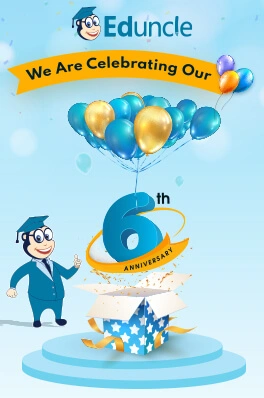
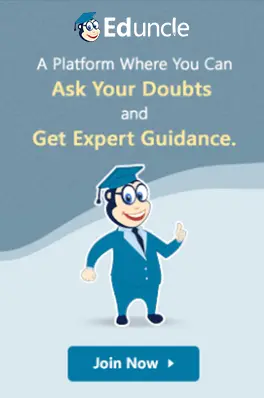

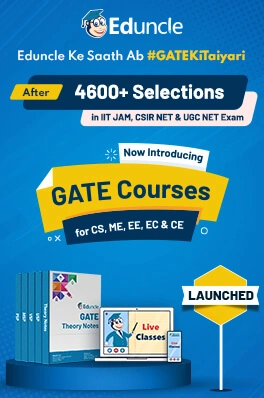








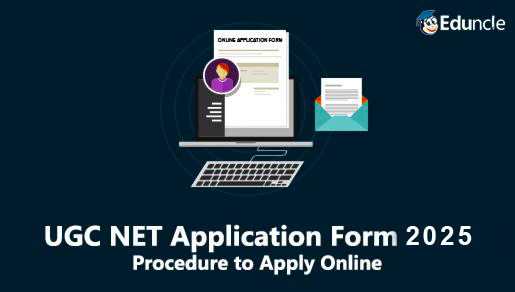


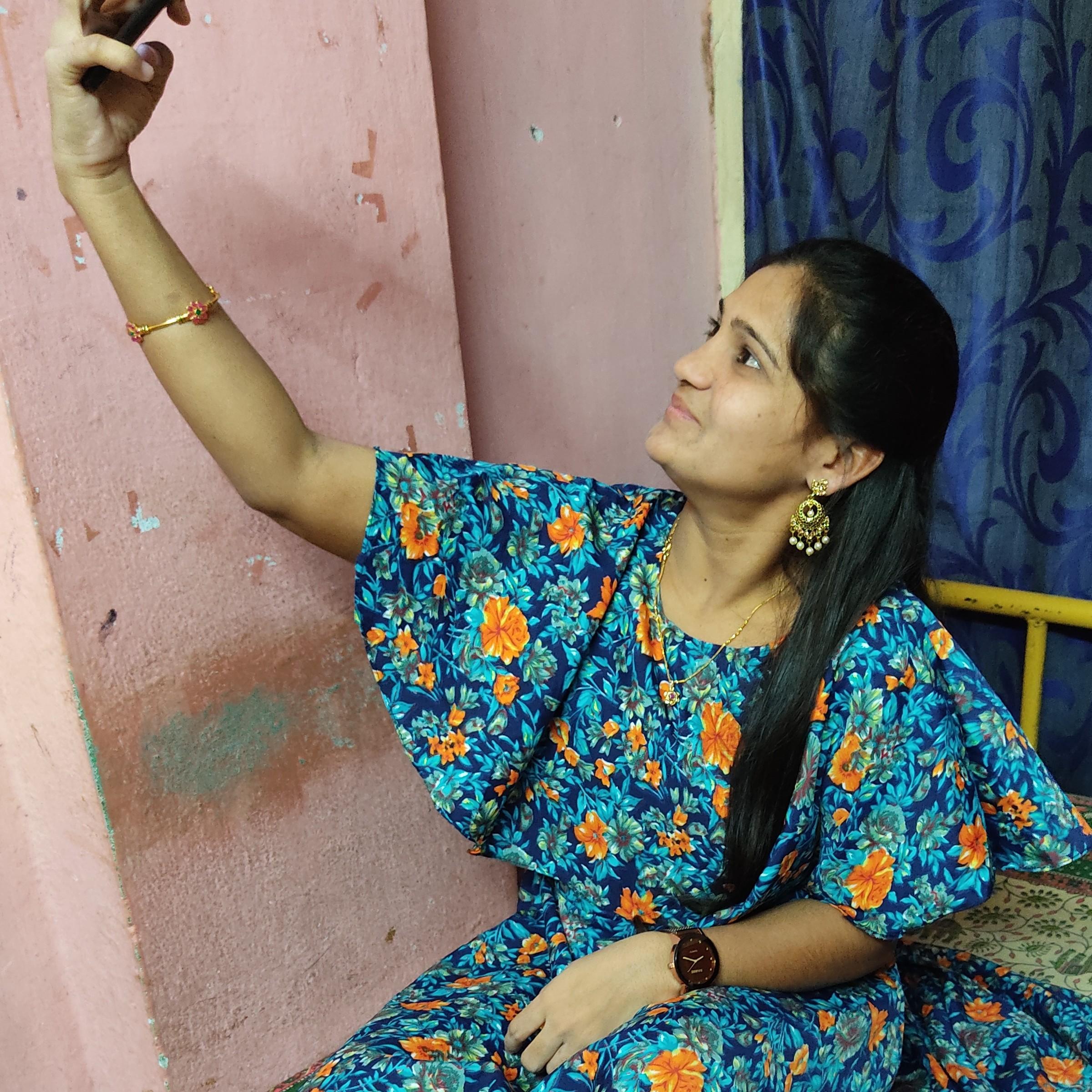 >
>







